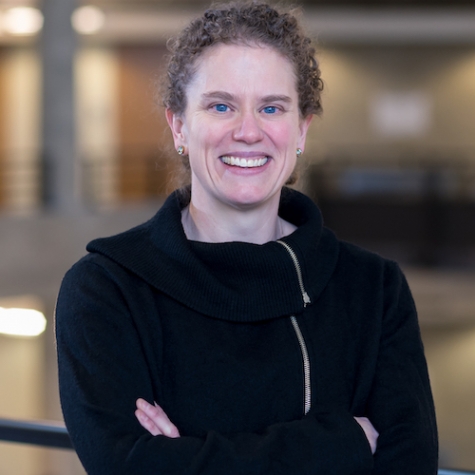Birds of a Feather: Americas HPC Collaboration
November 17 2021 5:15 PM CET
The 2021 edition of the Birds of a Feather (BoF) Americas High-Performance Computing (HPC) Collaboration seeks to showcase collaborations that have resulted from the partnerships formed in previous editions. It will also present opportunities and experiences between different HPC Networks and Laboratories from countries in North, Central, and South America. The goal of this BoF is to show the current state of the art in continental collaboration in HPC research, the latest developments of regional collaborative networks, and to update the roadmap for the next year for the Americas HPC partnerships.
The BoF Americas HPC Collaboration seeks to present different collaboration experiences between institutes, supercomputing centers, national laboratories, research groups and networks such as XSEDE, Compute Canada, Oak Ridge National Laboratory, Argonne National Laboratory, Pittsburgh Supercomputing Center with their different peers in Latin America such as SCALAC, RICAP, Brazilian Scientific Computing National Laboratory; CINVESTAV-Abacus (Mexico), National Laboratory for High Performance ( Chile), Advanced Computing Center (Colombia), National High Technology Center (Costa Rica), and more. This BoF will also present the state of the art of continental collaboration in HPC, discuss current and future regional perspectives and exchange practices that address common problems and challenges.
For the SC20 virtual edition, we had more than a hundred attendees (we counted more than 400 cumulative attendees), from multiple countries in North, Central, South America and the Caribbean. Assuming that this year there will be a mix of in-person and remote attendance, we would expect 50 on-site attendees and about 100 remote.
The expected outcomes of this BoF are described next: First, to build on top of our previous discussions to evaluate collaborative activities in research and outreach. Second, to offer a space to show relevant research projects developed by different actors (and selected of the First workshop of Americas HPC Collaboration developed in the 2021 Latin American Conference on HPC, CARLA) and finally, a discussion to increase and to strengthen the official Americas HPC Partnership, on behalf of the interest shown by XSEDE, ComputeCanada, SCALAC (with the support of RedCLARA), Department of Energy Laboratories, National institutes and centers of all the Americas to continental interests and beneficiaries. The result of the discussion will be the roadmap for the next two years.
The 2021 BoF Americas HPC Collaboration will have strategic guest presenters and representative guest attendees from international and national consortiums and decision-makers in the room to improve the discussion and to facilitate the interaction between all the participants.
Agenda
| Time | Description | Chair/Presenter |
| 5:15 5:20 | Welcome and Description of Initiative Americas HPC Collaboration | Carlos J. BARRIOS |
| 5:20 5:30 | Presentation of the 2020/2021 Activities and Evaluation | Veronica VERGARA |
| 5:30 5:50 | Selected Research Projects Dario Dematties (UBA Argentina) Luis Campos (TEC Costa Rica) | Moderated by Silvio RIZZI |
| 5:50 6:20 | PARTNERSHIP FOR AMERICA’S ACADEMIC ACTIVITIES – Katherine Riley DOE INCITE Program – Alvaro Coutinho, Brazil – USA Collaborative Academic Programs Experiences | Moderated by Benjamin HERNANDEZ |
| 6:20 6:40 | Round Table, questions and Discussion | Moderated by Philippe NAVAUX |
| 6:40 6:45 | Close and Remarks | Esteban MENESES |
Alvaro L. G. A. Coutinho
Alvaro L. G. A. Coutinho (male) is the Coordinator of the Interdisciplinary Area of Computational Engineering and Science and Director of the High-Performance Computing Center and a Professor at the Department of Civil Engineering in The Alberto Luiz Coimbra Institute for Graduate Studies and Research in Engineering (COPPE), The Federal University of Rio de Janeiro, Brazil; Coordination and participation in over 80 industry projects.

Recipient of the IBM Faculty Partnership Award, 2001; JTO Fellow at the Oden Institute of Computational Engineering & Science, UT Austin (2004); Recipient of the Giulio Massarani Academic Award, COPPE, 2007; Organizer of National and International conferences, training workshops, and short courses; Recipient of IACM Fellow Award, 2012. Editorial Board, International Journal for Numerical Methods in Engineering, Editorial Advisory Board, International Journal for Numerical Methods in Fluids; Associate Editor, Revista Internacional de Métodos Numéricos para Cálculo y Diseño en Ingeniería. Dissertations Directed, 32 Ph.D. and 35 M.Sc., 127 Journal papers, 415 Conference papers.
Katherine Riley
Katherine Riley is the Director of Science for the ALCF leading a fantastic team of experts in computational science, performance engineering, visualizations, and data sciences. The ALCF is familiar territory for Riley as she was one of the facility’s first hires in 2007. She previously served as a principal scientific applications engineer and manager of the ALCF catalyst team, a group of computational scientists who work directly with users to help them maximize their time on ALCF systems and achieve their research goals. Riley has also been a key contributor to the strategic vision of the facility, assisting with the design and development of ALCF supercomputers by helping to identify the scientific requirements for new systems. She has spent her career focused on scientific application architecture and how this impacts performance, scalability, and extensibility. In her new role as Director of Science, Riley leads scientific strategy for the ALCF, ensuring the facility delivers leading-edge computational capabilities and expertise that help advance fundamental discovery and understanding in a broad range of scientific and engineering disciplines.

Prior to joining the ALCF, she served as scientific applications engineer in the MCS division at Argonne and as a senior scientific programmer at the University of Chicago where she was a primary developer and co-architect of the FLASH multi-physics code.
Research interests include adaptive-mesh Methods, astrophysics, multi-physics, scientific software engineering and science code architecture, performance and portability.